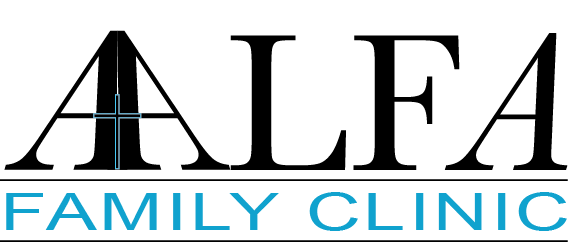Prenatal Care
We are happy to announce that we now offer in-clinic OB/GYN Ultrasound services. Talk to your doctor about scheduling!
Frequently Asked Questions
I'm Pregnant. When should I see my doctor?
Just found out you are pregnant? Schedule a Pregnancy Confirmation appointment. Your doctor will inform you at each visit when to return for your next prenatal check-up.
Our Prenatal Office Visit Schedule gives a general timeline for quick reference and provides additional information on what to expect at each visit.
Progesterone support during pregnancy
Your doctor may recommend Progesterone injections to reduce the risk of miscarriage and other complications. Be advised that not all insurance companies cover the cost of Progesterone injections. Contact your insurance company to determine your benefits and patient responsibility.
Never heard of Progesterone? Questions about the benefits, risks, cost, safety and administration of progesterone injections during pregnancy? Read our Progesterone Patient Information handout, and talk with your doctor.
What should I expect at my OB visits?
General Information: Every routine OB visit we will check weight, blood pressure, fetal heart tones, and fundal height (the size of the uterus). Read more…
Where do AALFA doctors deliver?
Our doctors deliver at:
St. John's Hospital in Maplewood, and
United Hospital in St. Paul. Please note: Dr. Matthew Anderson is NOT affiliated with United Hospital.
Pre-registration is required and helps ease the stress of your arrival at the hospital when you are ready to deliver.
Birth, Prenatal, and Parenting Classes
Ask your doctor for additional resources. * HE Prenatal Classes - St. Joseph's Hospital and St. John's Hospital * Birth & Parenting Classes - United Hospital
What medications are safe to take during pregnancy?
View our list of Medicines for Moms that are safe to take during pregnancy. If you have any questions or are in doubt about any medication, please check with your doctor.
Diet and Food Safety in Pregnancy
USDA's Food Safety and Inspection Service (FSIS) and the U.S. Food and Drug Administration (FDA) provide the following advice for pregnant women:
Do not eat hot dogs, luncheon meats, or deli meats unless they are reheated until steaming hot.
Avoid getting fluid from hot dog packages on other foods, utensils, and food preparation surfaces, and wash hands after handling hot dogs, luncheon meats, and deli meats.
Do not eat soft cheeses such as feta, Brie, and Camembert, blue-veined cheeses, or Mexican-style cheeses such as queso blanco, queso fresco, and Panela, unless they have labels that clearly state they are made from pasteurized milk.
It is safe to eat hard cheeses, semi-soft cheeses such as mozzarella, pasteurized processed cheese slices and spreads, cream cheese, and cottage cheese.
Do not eat refrigerated pâté or meat spreads.
It is safe to eat canned or shelf-stable pâté and meat spreads.
Do not eat refrigerated smoked seafood unless it is an ingredient in a cooked dish such as a casserole.
Examples of refrigerated smoked seafood include salmon, trout, whitefish, cod, tuna, and mackerel which are most often labeled as "nova-style," "lox," "kippered," "smoked," or "jerky." This fish is found in the refrigerated section or sold at deli counters of grocery stores and delicatessens.
It is safe to eat canned fish such as salmon and tuna or shelf-stable smoked seafood.
Do not drink raw (unpasteurized) milk or eat foods that contain unpasteurized milk.
Use all refrigerated perishable items that are precooked or ready-to-eat as soon as possible.
Clean your refrigerator regularly.
Use a refrigerator thermometer to make sure that the refrigerator always stays at 40 °F or below.
Am I in labor? What is normal for 3rd Trimester?
You may have noticed that it has been quite awhile since you have seen your toes. Yes, those sleepless nights, frequent bathroom stops and "I just can't find a comfortable position" complaints are normal. Wondering what to expect in the last weeks, what to watch for, and how to know if you are really in labor?
